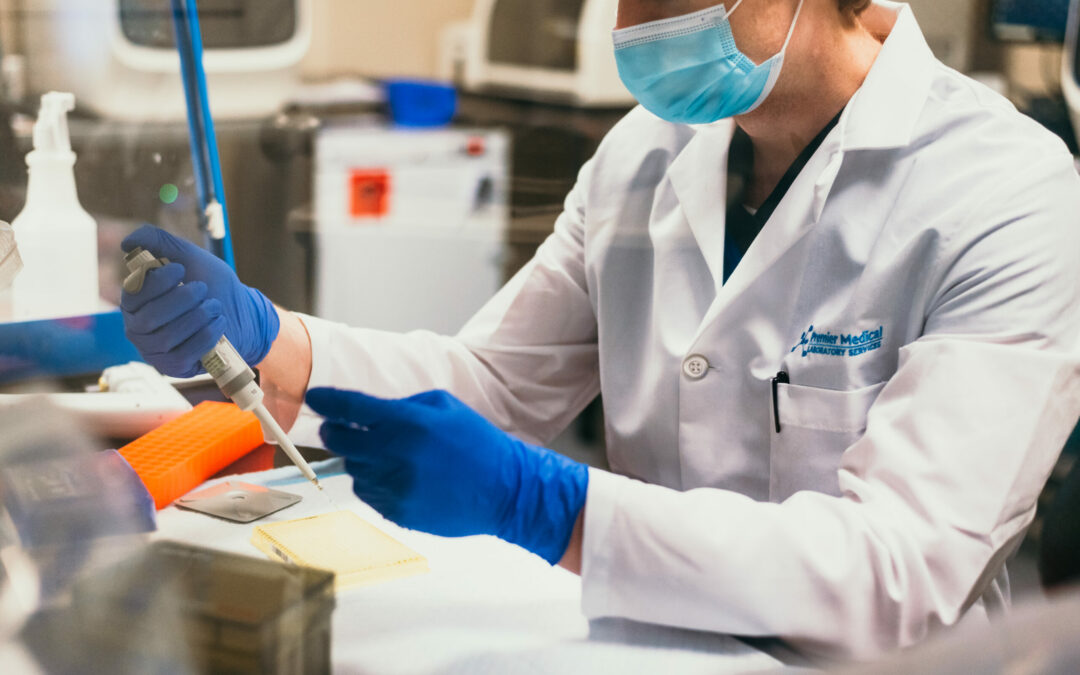~ Together, Rutgers and Premier are publishing a scientific article demonstrating their findings ~
Public Health Research Institute at Rutgers New Jersey Medical School and Premier Medical Laboratory Services (PMLS) have conducted studies on the stability and viral inactivation properties of the Truckee Applied Genomics (TAG) TAG-NGPM+ virus inactivating media. The studies show that the non-flammable solution contains a chemical make-up which may increase both room temperature stability and freeze-thaw integrity. This means that the specimen is better preserved during transit to a testing laboratory, and as a result, could increase the accuracy of testing results while decreasing the number of samples ruined by temperature changes. Rutgers’ data also shows that the patented TAG-NGPM+ inactivates SARS-CoV-2 in the specimen, making it safer for transport and handling by laboratory staff.
“PMLS is proud to participate in this collaborative effort with such great institutions as Rutgers and Truckee Applied Genomics,” said Austin Shirley, Director of Operations for Premier Medical Laboratory Services. “Effectively inactivating the SARS-CoV-2 virus and other pathogens before transporting them to labs, while also making the testing more accurate and the handling of the media safer, is a tremendous innovation in specimen collection.”
The TAG-NGPM+ media was developed based on the patented TAG-1™ Class 1 General Reagent. TAG-1 is a formaldehyde-free tissue fixative that was designed to improve molecular tests while requiring no changes to pathology workflows. The TAG-NGPM+ formulation adds sufficient and complementary anti-viral and anti-bacterial components. These components improve the safety of viral sample handling and provide safer and less costly media handling compared to other virus inactivating media since TAG-NGPM+ contains no guanidinium salts.
The studies conducted by PMLS show that the TAG-NGPM+ solution can also be used as an optimal transport media for COVID-19 sample testing. There was a 5 log10 reduction in the viral titer after treatment of SARS-CoV-2 virus with TAG-NGPM+ buffer within 30 minutes while the integrity of the viral RNA remained intact. This might potentially help centralized core laboratories and Point of Care (POC) laboratories safely process patient samples when access to BSL II facilities is limited. Another major advantage the buffer offers is in safe disposal in any disinfectant including 10% bleach solution, since the media is free of hazardous reactive chemicals like guanidinium isothiocyanate (GITC).
Drs. Padmapriya Banada and Sukalyani Banik conducted the studies in the Alland laboratory at Rutgers NJMS. According to Dr. Banada, “the TAG-NGPM+ transport media can potentially reduce the biohazard risk associated with COVID-19 testing, as practice that could otherwise expose laboratory personnel to live SARS-CoV-2, the virus that causes COVID-19. The study showed that the transport media inactivated SARS-CoV-2 at both room temperature and under refrigeration conditions at the tested concentrations. Studies by PMLS also showed that the transport media prolonged sample stability. By improving the safety and stability of COVID-19 test samples, the transport buffer should greatly simplify on-site or point of care testing in settings such as doctor’s offices, workplaces or schools”
Dr. Tian Yu, TAG VP of Product Development commented, “TAG-NGPM+ virus inactivation media was designed to increase lab staff safety, while eliminating the need for a cold chain and protecting RNA integrity for weeks at ambient temperature. Because TAG-NGPM+ is designed to better stabilize viral RNA fragments and preserve protein structures, it will enable additional testing formats on top of molecular testing which are known to show high specificity in COVID19 diagnosis.“
The article by Rutgers NJMS and PMLS demonstrating their research findings is soon to be published. For more information, please call 866-405-2199 or visit www.firstmedlabs.com.

